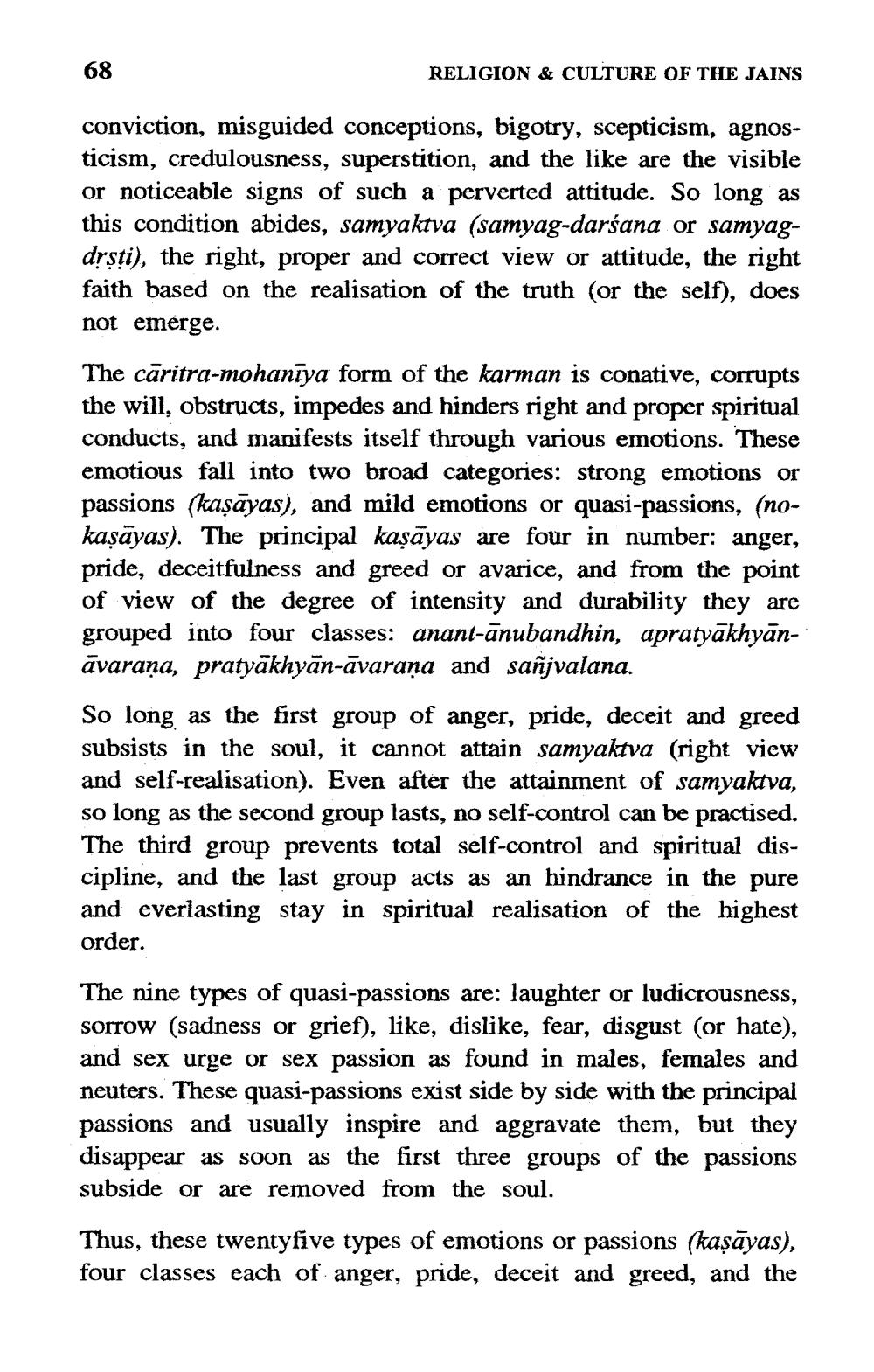________________
RELIGION & CULTURE OF THE JAINS
conviction, misguided conceptions, bigotry, scepticism, agnosticism, credulousness, superstition, and the like are the visible or noticeable signs of such a perverted attitude. So long as this condition abides, samyaktva (samyag-darśana or samyagdrsti), the right, proper and correct view or attitude, the right faith based on the realisation of the truth (or the self), does not emerge. The caritra-mohaniya form of the karman is conative, corrupts the will, obstructs, impedes and hinders right and proper spiritual conducts, and manifests itself through various emotions. These emotious fall into two broad categories: strong emotions or passions (kaşāyas), and mild emotions or quasi-passions, (nokaşāyas). The principal kaşāyas are four in number: anger, pride, deceitfulness and greed or avarice, and from the point of view of the degree of intensity and durability they are grouped into four classes: anant-ānubandhin, apratyākhyānāvarana, pratyākhyān-āvarana and sañjvalana. So long as the first group of anger, pride, deceit and greed subsists in the soul, it cannot attain samyaktva (right view and self-realisation). Even after the attainment of samyaktva, so long as the second group lasts, no self-control can be practised. The third group prevents total self-control and spiritual discipline, and the last group acts as an hindrance in the pure and everlasting stay in spiritual realisation of the highest order.
The nine types of quasi-passions are: laughter or ludicrousness, sorrow (sadness or grief), like, dislike, fear, disgust (or hate), and sex urge or sex passion as found in males, females and neuters. These quasi-passions exist side by side with the principal passions and usually inspire and aggravate them, but they disappear as soon as the first three groups of the passions subside or are removed from the soul.
Thus, these twentyfive types of emotions or passions (kaşāyas), four classes each of anger, pride, deceit and greed, and the




